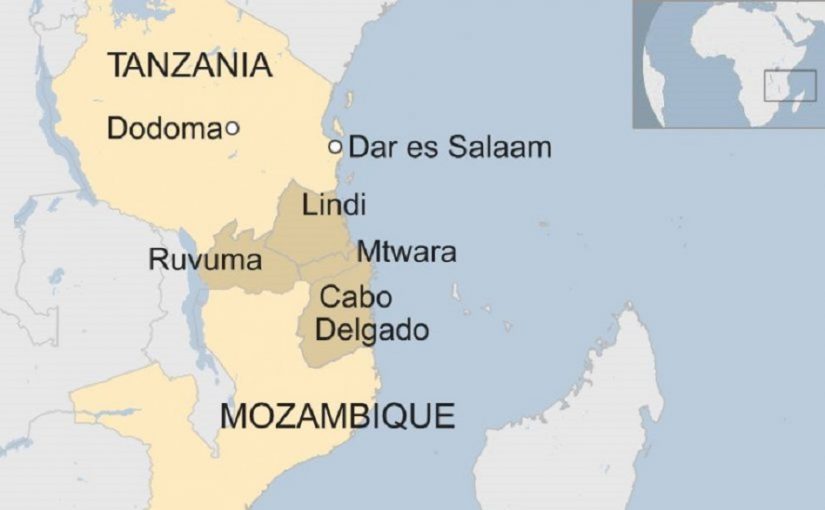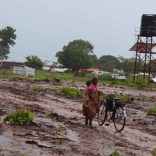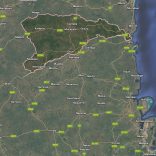Violence in northern Mozambique forces thousands to flee, straining aid efforts - UN News
Mozambique: Kidnapped women return, tell of insurgent organisation

Map. BBC
Reports of 23 abducted women who escaped from rebel bases in northern Mozambique reveal an organised group that recruits child soldiers and provide evidence of trafficking of Mozambican girls to foreign countries, according to a new study.
“What leads us to raise this hypothesis is the number of women who were kidnapped,” especially in 2020, says João Feijó, a researcher at the Rural Observatory (OMR), a Mozambican non-governmental organization.
There are reports of “hundreds of women” being abducted during the attack a year ago on Mocimboa da Praia, “the same thing in August” when the town was taken, and in other attacks, according to the report entitled “Characterization and social organization of the “machababos” [insurgents] from the testimony of abducted women”.
“If we add up [all occurrences], we reach many hundreds of women, which would raise a logistical problem of food and exposure of the group itself in military terms,” he maintains.
On the other hand, “there is the testimony of the most beautiful girls who, after an indoctrination session, come to tell their colleagues that they were selected to go to Tanzania to study”.
The researcher and the OMR team believe that their destination is a network of trafficking in women that extends to Europe and the Persian Gulf. The study suggests, among other measures, a strengthening of border control.
The kidnapped women at the insurgent bases also saw “children and teenagers carrying out military training and fights with machetes”, as well as young people, who had been in the group “for two and three years” and were “looking forward to their first mission”.
One of the women reports the case of a 14-year-old boy “who had come from his first mission” and was “happy” and “fulfilled” to have murdered and beheaded someone.
The situation raises questions for the future. “When the war is over, a great social reintegration and de-radicalisation effort will be necessary. It is important to think about what to do,” Feijó observes.
The accounts of the kidnapped women also show a group that is better organised than is usually described.
“The group is sold by the media as a group of vandals and bandits, but they are much more prepared than we think. We have been underestimating the group for many years,” Feijó stresses.
They have access to technology, information and professional specialisations: there are people dedicated to telecommunications, filming, there are nurses, mechanics and others only dedicated to military action, he says.
An inside look at the insurgency also reveals a heterogeneous group, with orthodox foreigners, a well-travelled Mozambican middle class, with influences from Tanzania, and a mass of youngsters recruited in Cabo Delgado “who are there out of anger and revolt towards the State”.
“This group was able to recruit from the social [base of] Renamo ,[Mozambican National Resistance, the main opposition party],” that is, those “who relate to the state by opposition, who have a feeling of historical revolt”.
The reports also show internal tensions, with summary trials and beheadings of the rebels’ own commanders.
The 21-page report ends with seven recommendations to break what Feijó calls a “vicious circle of violence”.
“In a context of armed conflict, populations are caught between the violence of the rebels” and the “mistrust of the Defence and Security Forces (FDS)”.
“This mutual pressure leads them to flee from there, to the south of the province, where they encounter insufficient aid and social injustice, which pushes them back into violent movements and the cycle continues,” he describes.
According to João Feijó, the military response “is generating more violence and injustice and feeding these groups” of insurgents.
“A lot of money is needed to support the small economic activities of all these people” fleeing the conflict, promoting “economic integration”, along with clear messages of implementing the rule of law”, with access to justice and space for social participation without recourse to violence.
On a more practical level, the study advocates “building strong alliances and obtaining international support, particularly with countries affected by terrorist attacks, implying cooperation in border patrolling, information sharing and criminal investigation services.”
“Border control will be fundamental to prevent international trafficking in women, logistical supply, the escape of military personnel or the financing of violent organisations,” he concluded.
Armed groups have been terrorising Cabo Delgado since 2017, with some attacks claimed by the ‘jihadist’ group Islamic State, in a wave of violence that has already caused more than 2,500 deaths, according to accounts made by Lusa, and 700,000 thousand displaced people, according to United Nations data.
The most recent attack was made on March 24 against the town of Palma, causing dozens of deaths and wounded, in a balance that is still ongoing.
The Mozambican authorities regained control of the town, but the attack led oil company Total to abandon the gas project site indefinitely, which is due to start production in 2024 and on which many of Mozambique’s expectations for economic growth in the next decade are anchored.
- You may read, download the full working paper by João Feijó / OMR, in Portuguese, HERE.












Leave a Reply
Be the First to Comment!
You must be logged in to post a comment.
You must be logged in to post a comment.